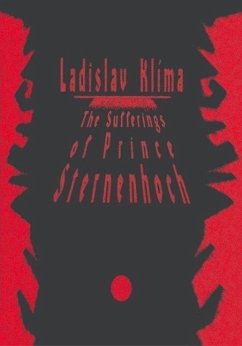Philosopher, novelist, essayist, eccentric, no other Czech author has had a greater impact on underground culture than Ladislav Klima (1878-1928). Mentor to artists as varied as Bohumil Hrabal and the Plastic People of the Universe, Klima's philosophy was radically subjectivist, and he felt it should be lived rather than merely spoken or written about. With Nietzsche as his paragon, he embarked upon a lifelong pursuit to become God, or Absolute Will, elucidating this quest in many letters, aphorisms, and essays. Yet among Klima's fictional texts, the apotheosis of his philosophy is The Sufferings of Prince Sternenhoch, his most acclaimed novel. Ostensibly a series of journal entries, the tale chronicles the descent into madness of Prince Sternenhoch, the German Empire's foremost aristocrat and favorite of Kaiser "Willy." Having become the "lowliest worm" at the hands of his estranged wife, Helga, the Queen of Hells, Sternenhoch eventually attains an ultimate state of bliss and salvation through the most grotesque perversions. Klima explores here the paradoxical nature of pure spirituality with a humor that is as darkly comical as it is obscene. This volume also includes his notorious text "My Autobiography."
Hinweis: Dieser Artikel kann nur an eine deutsche Lieferadresse ausgeliefert werden.
Hinweis: Dieser Artikel kann nur an eine deutsche Lieferadresse ausgeliefert werden.








